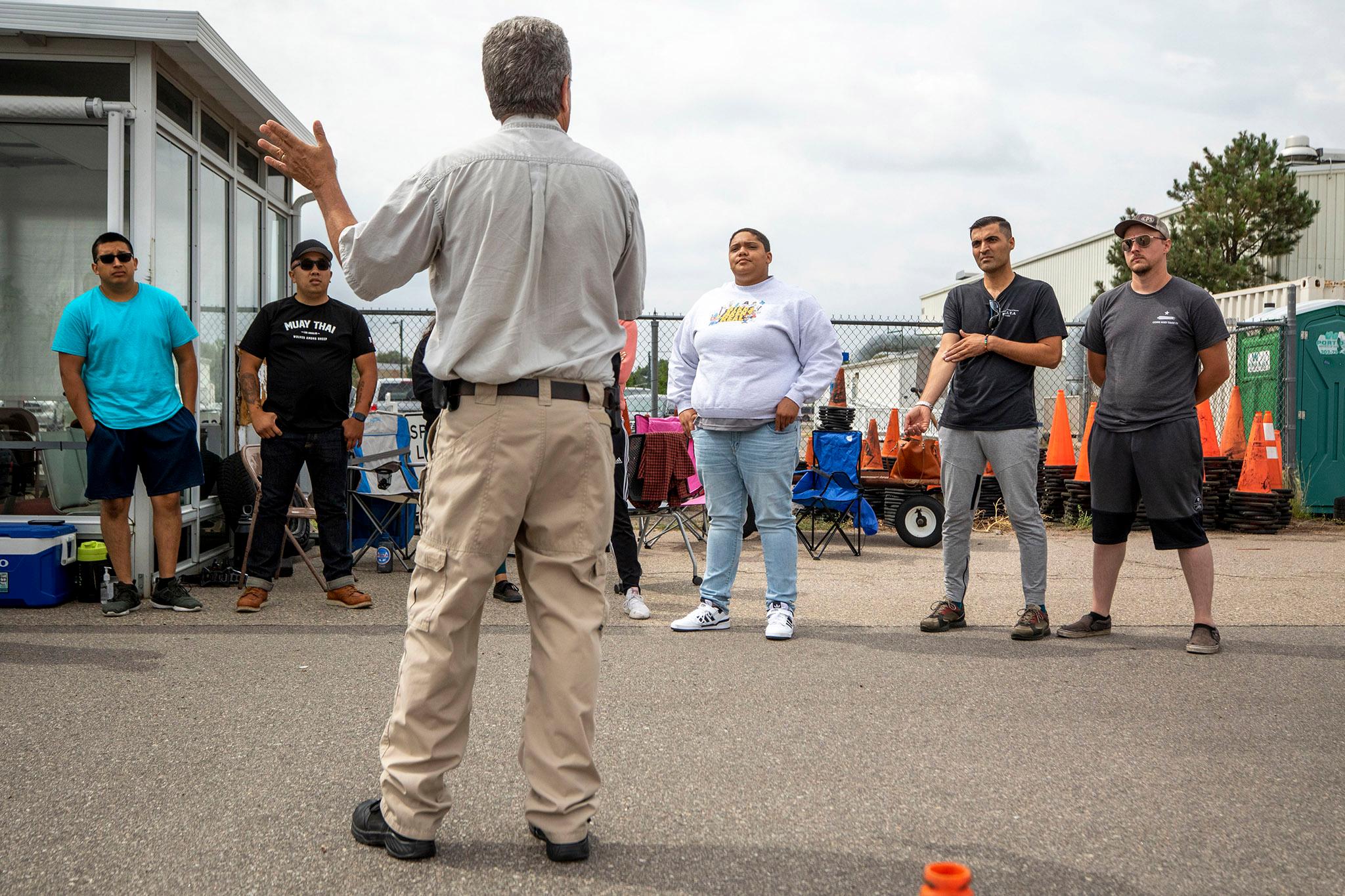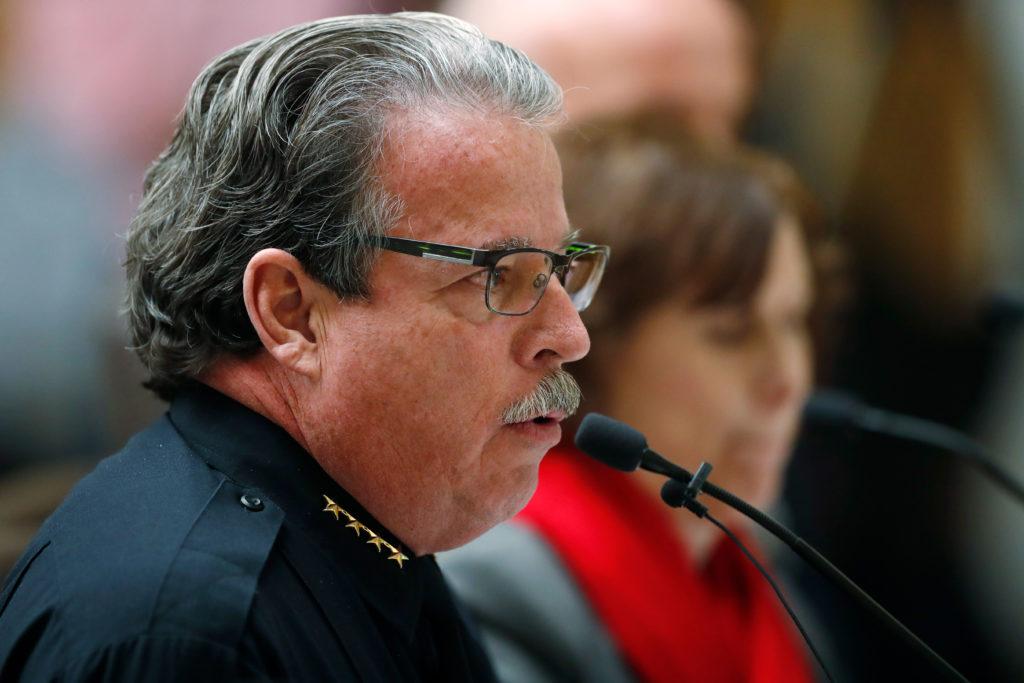
More law enforcement officers in Colorado left the profession in 2021 than in previous years — and sheriffs and police chiefs are struggling more than ever to fill the positions across the state.
More than 2,400 officers quit or were forced out of positions in 2021 and just over 1,700 officers were hired, according to data obtained by CPR News by Peace Officers Standards and Training under the Colorado Department of Law.
That includes 30 officers who lost their license to be peace officers in the state due to misconduct or misdemeanor or felony convictions, according to data.
Overall, that’s a replacement rate of 74 percent.
This compares to 2018, when just 2,050 officers left the profession but 2,801 were hired.
“We are having a much more difficult time finding folks who are, one, qualified and, two, interested in a law enforcement career. It’s been a struggle,” said Douglas County Sheriff Tony Spurlock. “It’s been more difficult in recruiting and more difficult in trying to retain some of the folks who are just leaving. It’s not about money and it’s not about benefits. We’ve tried to do a lot.”
Spurlock admits to poaching officers from other agencies and dangling generous benefits packages to get them through the door. He also said he’s started a pipeline to leadership program that helps deputies advance quickly if they want to.
One police reform sponsor says some attrition was expected
State Rep. Leslie Herod, who has sponsored police reform legislation in previous years, said she expected some attrition when officers were held to higher standards on the job. She said she doesn’t think the current numbers tell a complete story.
“They have enough applicants to fill the positions, they’re just not meeting the requirements,” Herod said. “I think some are leaving because they’ve been terminated and didn’t like the new accountability laws and standards and some may not like the climate right now around policing.”
But she points out that sectors across the economy are feeling worker shortages.
“We’re seeing this in teachers, in nursing homes, in hospitals, in janitorial services,” Herod said. “When we look specifically at police officers how much of that is in line with the national trend?”
Police academies, too, slowed down admissions during the height of the pandemic in 2020, and because most of them are six to nine-month programs, the smaller pipeline is being felt now.
Many officers are burned out after working during the pandemic
Law enforcement leaders cite a number of factors in why so many officers have left agencies in the past couple of years in Colorado.
The biggest one is likely utter burnout. Officers have been on the frontline as essential workers out on patrol and staffing jails throughout the deadly pandemic.
A number of officers have died of COVID-19 on the job, including Douglas County Det. Joe Pollack, 64, who died last month of the disease after being fully vaccinated. Pollack had weak lungs, in part, due to work he did on Sept. 11, 2001, with the New York Police Department, where he spent 20 years earlier in his career. His death was considered a “line of duty” death.
“The last two years, think about these frontline workers who have put themselves on the line and risked their health and safety,” said Attorney General Phil Weiser. “We have so much trauma and difficulty coming out of this pandemic, a lot of people are saying I can’t take this anymore. I have to take a break.”
Law enforcement agencies' morale is hurt, officials say
Law enforcement officials also say the dialogue and criminal justice reform legislation borne out of the police brutality protests in the summer of 2020 hurt morale in agencies across the state.
Even if most officers agree that on-duty misconduct should result in criminal charges against individual officers, lawmakers and the media focus on “a few bad apples” instead of “the whole crate,” Spurlock said.
“The sentiment there for a long time was pretty strong about how people viewed law enforcement,” he said. “Out of 1,000 things a police officer does every day, 999 are done perfectly, but sometimes we do make mistakes and sometimes there are bad apples. I just think in this past couple of years, it’s been very difficult.”

At the Fort Collins Police Department, Chief Jeff Swoboda said they have been able to keep up with hiring for all their vacancies, but he’s noticed that about 30 percent fewer people want to take the test to become police officers.
“But we did notice that the people who were actually taking the tests were more focused,” he said.
Swoboda said all the officers coming up to Fort Collins from other agencies in the metro area want to know they’re going to be supported.
“I think many officers are making calculated decisions like, I still love this work, but I want to do it in a community that treats me well, that trains me,” he said. “They’re looking for organizations that are going to be vocal in their support for police officers.”
Swoboda points out that a Fort Collins couple recently walked in the door and donated $193,000 to his agency, which allowed him to buy rifle plates for his officers.
Polis and other Democratic lawmakers are focusing on supporting law enforcement
Support for police is something that is being echoed at the very top levels of state government.
In Gov. Jared Polis’ state of the state address on Thursday, he asked for a standing ovation for law enforcement, saying, “today, let us stand up for you.”
He then pledged more resources for training and recruiting efforts and mental health support.
Weiser is working on a $10 million measure sponsored by Democratic state Sen. Jeff Bridges that will help retain existing officers and recruit new ones along with providing them more robust trauma counseling if they need it.
“Policing is a traumatic experience and we have to create space to let people recover from trauma and pushing people to work harder in policing is not smart from a public safety perspective,” he said. “We need more people to enter into this profession.”









